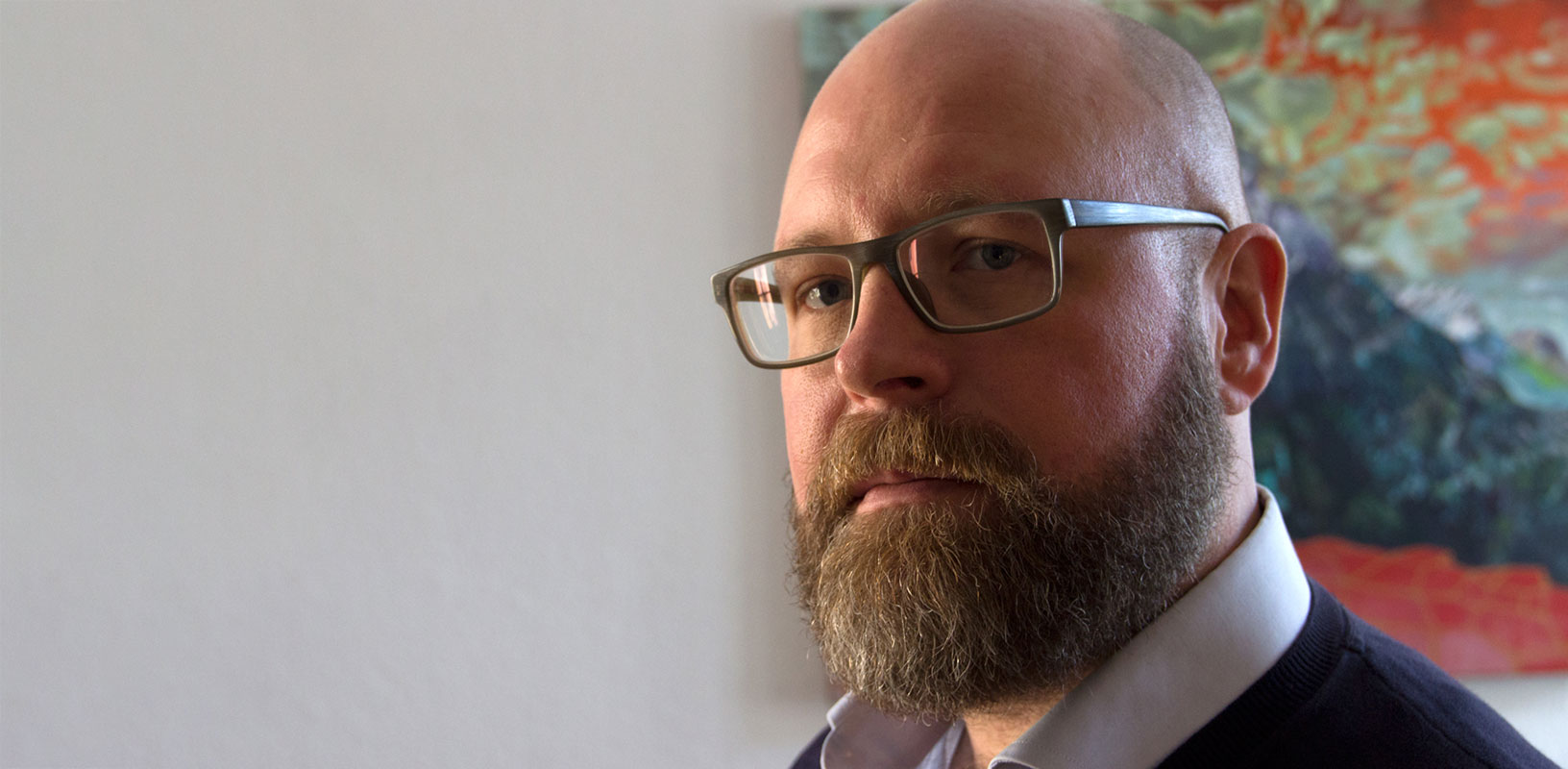Introducing Jüri Reinvere: 50th birthday premieres

Estonian-born composer Jüri Reinvere, who celebrates his 50th birthday this month, has received three new orchestral premieres this season. He discusses his recent style and the theatrical impulses that lie behind much of his music.
Leading up to his 50th birthday on 2 December, the Estonian-born composer Jüri Reinvere, now resident in Frankfurt in Germany, has received three major orchestral premieres in Saarbrucken, Tallinn and Munich. The Inner Sea was given its first performance by the Deutsche Radio Philharmonie Saarbrücken Kaiserslautern under Pietari Inkinen on 31 October, Two Bracelets of Klara was unveiled by the Tallinn Chamber Orchestra on 10 November, and Of the Dying of the Stars was premiered by the Bavarian Radio Symphony Orchestra under Pablo Heras-Casado on 12 November.
Reinvere’s music often uses his own poetry, whose complex language incorporates his own experiences of a cosmopolitan life. His first teacher in composition was Lepo Sumera, while also training as a pianist. From 1990 to 1992 he studied composition at the Fryderyk Chopin Academy of Music in Warsaw, and between 1994 and 2004 at the Sibelius Academy in Helsinki, combining music and theology studies. He moved to Germany in 2005 and his creative life encompasses not only music but also broadcasting and writing poems, essays and critical texts on political and cultural topics. Reinvere himself considers three things central in his background: his childhood and youth in Soviet Estonia, his schooling in Finland and his long-standing creative friendships with Käbi Laretei and Ingmar Bergman.
Reinvere’s aesthetic follows two directions: a resolute modernity with all its tonal harshness and, at the same time, a bold response towards Romanticism, creating a very personal idiomatic approach. His major works, especially the operas and orchestral pieces, mediate between the two directions. They adhere to a psychological understanding of drama, but expand the means of representation beyond earlier traditions. His symphonic music fuses various orchestral dialects of Europe, especially the colouristic French school with the more multi-layered instrumental modernism of Germany.
In his chamber music and ensemble works, Reinvere blends advanced methods of sound production with classical narrative structures. The strict elaboration of the work’s form is accompanied by an openness to other arts, to questions of theology, politics, general history and everyday life. However, the emphasis is on the immediate sensual presence of the art.
To what extent has your style changed in more recent works?
My ‘style’, if I may say so, was already quite diverse anyway. If you hold my Requiem against my first opera Purgatory - both written almost at the same time - then the differences in the tonal worlds are immense. Not much has changed in that I have remained true to my conviction to not adhere to any political or artistic ideology, whether ideologies of material or process. But every material, every process can be an inspiration for me. I have no resentment whatsoever. What I want is that people are emotionally touched when they listen to my music and that they get something to think about: that something is given to them, not taken away, and that it is music they can have confidence in.
In fact, in recent years the proportion of purely instrumental music has increased. Before, I had frequently included my own poems in my pieces, often via electronic feed. Recently, I have tended to set my own texts to music - in the song cycles Pale Carnival and Songs in Dwindling Light as well as in the opera Minona. However, based on discussions with commissioners, I have increasingly written purely instrumental works, orchestral and chamber music, without any reference to texts.
The stage works are nevertheless a central component of your oeuvre. Can one go so far as to describe the musico-dramatic element as a characteristic of your instrumental music?
I do indeed enjoy writing for the stage because I have thought a lot with Ingmar Bergman about the development of dramatic characters: about psychology, motivations, conflicts. And I try to make sure that my instrumental music also has narrative qualities. It should enable the listener to have a meaningful formal experience. But this does not have to follow the conventions of classical forms or the ideal of classical beauty.
The negation of such expectations of form and norms can also become a powerful experience of meaning. The fullness as well as the emptiness, the beautiful as well as the ugly, the fine as well as the coarse, the delicate as well as the rough, even the unfinished can be strong forms and expressive qualities. However, I do not write programme music; my titles only open up associative spaces.
That does not apply to opera, which needs more than associative spaces: it needs stringent drama. The audience goes to the theatre to be told stories. My great concern is that in contemporary theatre, storytelling is increasingly overwhelmed by lecturing and commenting. George Steiner spoke of 'footnote art', of the loss of the primary and the prevalence of the secondary. This makes theatre, art par excellence, superfluous. We have to be able to narrate and communicate our time, otherwise we’ll do away with ourselves.
Works by Jüri Reinvere are published by Boosey & Hawkes / Sikorski
Photo: Elly Clarke
